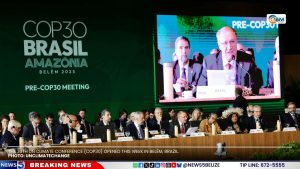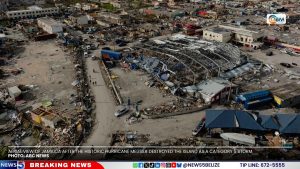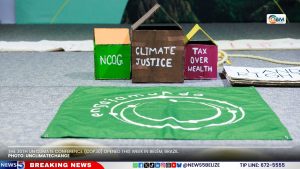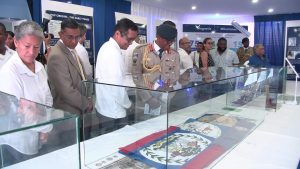COP30 Opens Global Climate Talk
The world is running out of time to stop rising temperatures, and over 150 world leaders have once more gathered around the big table at COP30 to discuss perhaps one of the last chances to act before it’s too late.
The 30th UN Climate Conference (COP30) opened this week in Belém, Brazil, and it’s the biggest climate talk around how to slow global warming while protecting the planet’s most vulnerable.
Why COP30?
If you’re wondering why there’s yet another need for world leaders to flock to the heart of the Amazon to discuss a way forward, renew pledges, or finally commit to one, it’s because COP30 marks a critical checkpoint. It’s been ten years since the Paris Agreement, and the world is still off track to limit global warming to 1.5°C.
This time, the stakes are higher than ever. The year 2024 was the hottest on record, and for the first time, Earth’s average temperature surpassed the 1.5°C threshold. That number might sound small, but it represents significant changes such as more intense storms, rising seas, dying coral reefs, and the slow disappearance of entire communities. For small island and coastal nations like Belize, these aren’t distant problems.

COP30 Opens Global Climate Talk
“Implementation, Implementation, Implementation”
Today, as COP30 opened its table talks, UN Secretary-General António Guterres reinforced the call for COP30 to be the beginning of a decade of acceleration and results. “This means advancing renewable energy, electrification, and energy efficiency; building modern grids and large-scale storage; and halting and reversing deforestation by 2030,” he declared.
He said this is the time for world leaders to agree on an ambitious and credible response plan, saying, “This is no longer the time for negotiations. It is time for implementation, implementation, and implementation.”
But for many developing nations, including those in the Caribbean, implementation means little without financing. Promises of climate aid have long fallen short. The much-discussed $100 billion annual climate finance target, first pledged in 2009, remains unmet. Funds that are available often come as loans, not grants, leaving small economies struggling with debt even as they rebuild after storms.
Belize and other Caribbean nations continue to call for fairer systems, ones that recognise loss and damage, debt relief, and the right to rebuild without being penalised economically. Regional leaders insist that without financial support, adaptation remains a talking point rather than a reality.
For these countries, implementation means early-warning systems, climate-resilient infrastructure, and reforestation projects, not just climate speeches.

COP30 Opens Global Climate Talk
A Region Already Paying the Price
In the Caribbean, the cost of inaction is already being felt. Just last week, Hurricane Melissa tore through the region, leaving a trail of destruction across Jamaica, Cuba, and Haiti. By Tuesday, November 4, Melissa’s confirmed death toll is 76, as Haiti’s official count climbed to 43, with 13 more missing, and Jamaica confirmed 32 deaths; one was reported in the Dominican Republic.
Melissa’s rapid intensification to 185 miles per hour in under 24 hours made her one of the strongest hurricanes recorded in history, and was a brutal reminder of how climate change is supercharging natural disasters.
The fact is that while Caribbean countries contribute the least to global emissions, they are among the first to suffer the consequences. This year, developing countries like Jamaica are not coming to the table empty-handed; instead, they are bringing the evidence of what inaction looks like: lost livelihoods, destroyed infrastructure, and shattered economies. According to the latest estimates, Jamaica saw between six and seven billion U.S. dollars in losses, equal to roughly 28 to 32 per cent of the island’s previous year’s GDP.

COP30 Opens Global Climate Talk
A Moment of Reckoning
With 10 years since the Paris Agreement, how much more will humanity suffer due to climate change? And how much suffering can this year’s climate talks prevent?
That reckoning is deeply personal for the Caribbean. Each hurricane season tests the limits of adaptation. Communities still recovering from one storm are often struck by the next.
Will this COP30’s promises turn into progress?






Facebook Comments